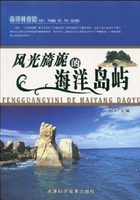Matters of the mind and of the soul were under the guardianship of the Church. More than merely a spiritual mentor, it controlled education and determined in large measure the course of intellectual life. Possessed of vast wealth in lands and revenues, its monasteries and priories, its hospitals and asylums, its residences of ecclesiastics, were the finest buildings in every community, adorned with the masterpieces of sculptors and painters. A village might boast of only a few squalid huts, yet there in the "plaza," or central square, loomed up a massively imposing edifice of worship, its towers pointing heavenward, the sign and symbol of triumphant power.
The Church, in fact, was the greatest civilizing agency that Spain and Portugal had at their disposal. It inculcated a reverence for the monarch and his ministers and fostered a deep-rooted sentiment of conservatism which made disloyalty and innovation almost sacrilegious. In the Spanish colonies in particular the Church not only protected the natives against the rapacity of many a white master but taught them the rudiments of the Christian faith, as well as useful arts and trades. In remote places, secluded so far as possible from contact with Europeans, missionary pioneers gathered together groups of neophytes whom they rendered docile and industrious, it is true, but whom they often deprived of initiative and selfreliance and kept illiterate and superstitious.
Education was reserved commonly for members of the ruling class.
As imparted in the universities and schools, it savored strongly of medievalism. Though some attention was devoted to the natural sciences, experimental methods were not encouraged and found no place in lectures and textbooks. Books, periodicals, and other publications came under ecclesiastical inspection, and a vigilant censorship determined what was fit for the public to read.
Supreme over all the colonial domains was the government of their majesties, the monarchs of Spain and Portugal. A ministry and a council managed the affairs of the inhabitants of America and guarded their destinies in accordance with the theories of enlightened despotism then prevailing in Europe. The Spanish dominions were divided into viceroyalties and subdivided into captaincies general, presidencies, and intendancies. Associated with the high officials who ruled them were audiencias, or boards, which were at once judicial and administrative. Below these individuals and bodies were a host of lesser functionaries who, like their superiors, held their posts by appointment. In Brazil the governor general bore the title of viceroy and carried on the administration assisted by provincial captains, supreme courts, and local officers.
This control was by no means so autocratic as it might seem.
Portugal had too many interests elsewhere, and was too feeble besides, to keep tight rein over a territory so vast and a population so much inclined as the Brazilian to form itself into provincial units, jealous of the central authority. Spain, on its part, had always practised the good old Roman rule of "divide and govern." Its policy was to hold the balance among officials, civil and ecclesiastical, and inhabitants, white and colored. It knew how strongly individualistic the Spaniard was and realized the full force of the adage, "I obey, but I do not fulfill! "Legislatures and other agencies of government directly representative of the people did not exist in Spanish or Portuguese America. The Spanish cabildo, or town council, however, afforded an opportunity for the expression of the popular will and often proved intractable. Its membership was appointive, elective, hereditary, and even purchasable, but the form did not affect the substance. The Spanish Americans had an instinct for politics. "Here all men govern," declared one of the viceroys; "the people have more part in political discussions than in any other provinces in the world; a council of war sits in every house.














